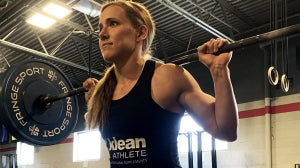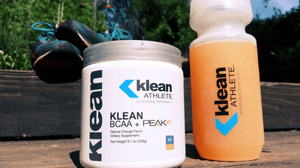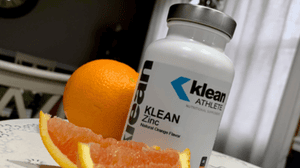
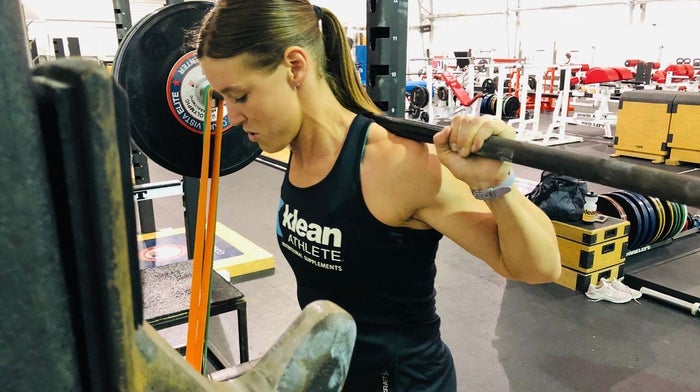
Dietary protein is integral to the structural framework of your muscle growth and development, especially during strength and power training.
Protein enables your body to produce vital antibodies that keep your immune system functioning, enzymes to aid your digestion and support the metabolic pathways that promote strength, and hormones that create the ideal environment for your muscles to grow.[1]
A small dose of protein has been shown to reduce muscle breakdown once high-intensity exercise begins. What’s more, protein-rich foods stay in the stomach for longer than carbohydrates, keeping you satisfied for longer and delivering nutrients to the bloodstream more gradually. As a result, protein can help to maintain energy levels over a longer period, allowing for longer and more intense workouts.[2]
The more we challenge our bodies, more physiological processes are required to meet those greater demands, and that means we need extra dietary protein: the ultimate source of strength and power.
Why Protein During Exercise is Vital
Consuming protein before and during exercise helps to prepare your body for anabolism; when you begin exercising, your body stops its own protein production, but you still want to create an environment where your muscles can grow.
Taking in dietary protein (whether that’s in the form of a high-protein pre-workout meal or a protein shake made with whey isolate powder during your workout) can provide an alternative energy source and helps to promote blood sugar balance.
Post-workout, extra protein can join your body’s supply of amino acids to be transformed into new tissue, antibodies, enzymes and hormones, playing a crucial role in building and repairing muscle.
How Much Protein Do I Need?
Daily protein intake is recommended as 1.2-1.7g of protein for every kilogram of your body weight per day.
However, this varies depending on your stage of training, your main goal and your age.
It’s also important to spread your protein intake throughout the day to preserve muscle and promote additional growth.
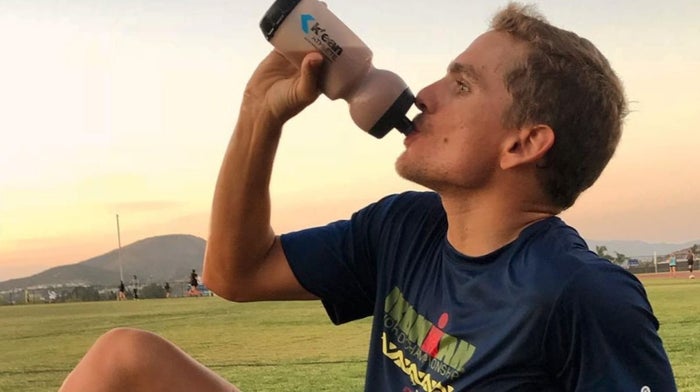
Pre-Workout
One to four hours before training, concentrate on fueling up on carbs, with protein to support. Most athletes can tolerate up to 20g of protein before exercising.
Goal: Gain Muscle Mass
If your main goal is to gain muscle mass or you’re new to weightlifting, start at the higher end of the recommended range, consuming 1.5-1.7g of protein for each kilogram of your body weight.
Goal: Maintain Body Weight
If you’re looking to maintain your body weight, aim for 1.2-1.4g for each kilogram of your body weight, aiming for 1.4g on more intense training days.
Age Variations
If you’re under 40, aim for 20-25g of high-quality protein per meal; people over 40 should strive for 30-40g per meal.
Bear in mind that, regardless of age, everyone should aim for 10-15g of protein in their afternoon or evening snacks.
Upper Limits
It’s important to note that protein intake above 2.5g for every kilogram of body weight is not recommended due to the potential for excessive accumulation of protein by-products, dehydration and compromised bone health.
Advice for Consuming Protein During Exercise
The body has been shown to be able to tolerate 20g of high-quality protein during exercise. To put this into context, below are some sources of 20g protein. As you can see, a protein shake is a much more practical option, but provides the same protein content as many other protein-rich food sources:
How to get 20g Protein
3 eggs
2.5 cups of milk
1 cup of Greek yoghurt
85g meat, chicken or fish (equivalent to the size of a deck of playing cards)
¾-1 cup of firm tofu
2 soy-based veggie burgers
2 veggie sausage patties
2 cups cooked pasta
¾ cup 1% fat cottage cheese
2/3 cup low-fat shredded cheese
1.5 cups beans
1/3 cup roasted soybeans
1 scoop Klean Isolate - just one scoop contains 20g of high-quality protein, with over 2g of leucine (an amino acid shown to further enhance anabolism) per serving
Post exercise: 1 scoop Klean Recovery, mixed with 300ml low-fat milk
Check out more ways you can use Klean Isolate in your routine with our high-protein snack recipes.
How Protein Can Support Your Post-Workout Recovery
After a high-intensity training session or competition, protein plays a vital role in the repair of muscle microtears and supports new muscle protein synthesis. Muscles are most receptive to protein 30-60 minutes after exercise; so much so that this key period is often referred to as the anabolic window.
What’s more, consuming foods rich in both protein and carbohydrates at this stage can promote glycogen replenishment in the muscles and liver after exercise, helping to balance your blood sugar levels.
If you’re under 40, you should be consuming 10-15g of high-quality protein at this stage, along with 35g carbs within 60-90 minutes of the end of your workout. For people over 40, this should increase to 20g of protein, along with 35g carbs.
For optimal post-workout recovery, aim to consume small, regular doses of protein during the anabolic window to minimize protein breakdown. Slowly drinking a protein shake made from Klean Isolate is an ideal choice, as its formula is quickly digested, providing your body with an immediate dose of beneficial amino acids.
Alternatively, consider introducing Klean Creatine Powder into your routine. Discover everything you need to know about what creatine is and what it does here:
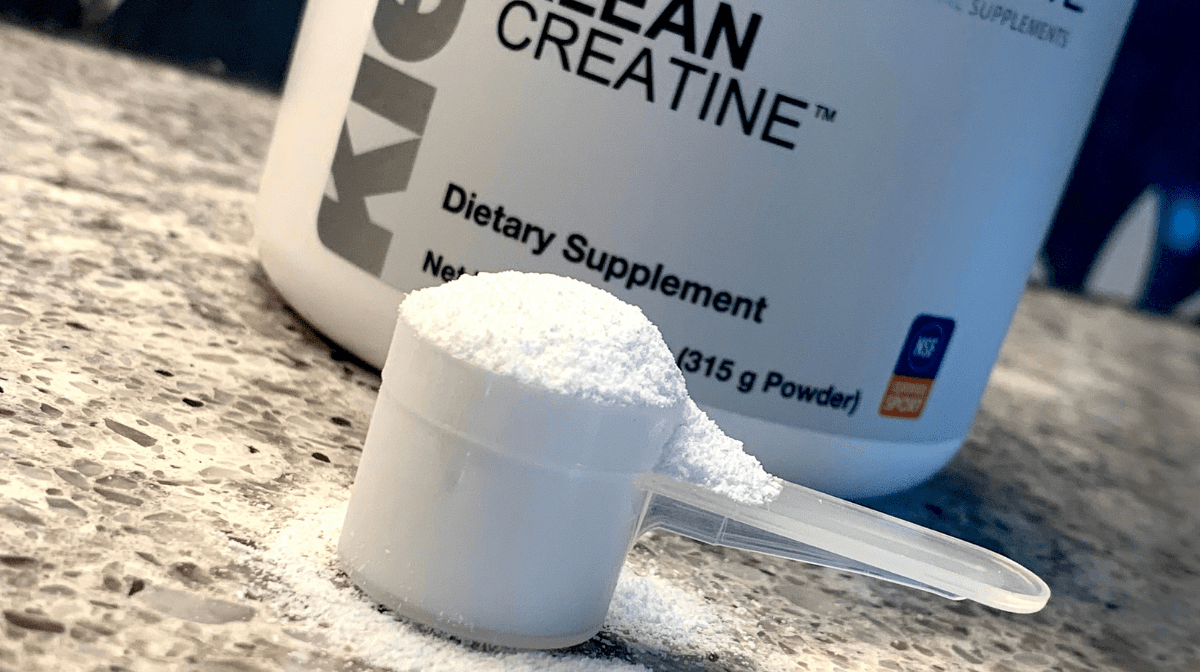
What is Creatine and What Does it Do?
Discover everything you need to know about creatine.
References:
Dix,RN, BSN, Meghan (2021, April 1). How Is Protein Digested? Healthlinecom. https://www.healthline.com/health/protein-digestion
Youdim, Adrienne (2019 August). Carbohydrates, Proteins, and Fats. MSD Manuals.com. https://www.msdmanuals.com/en-gb/home/disorders-of-nutrition/overview-of-nutrition/carbohydrates-proteins-and-fats


